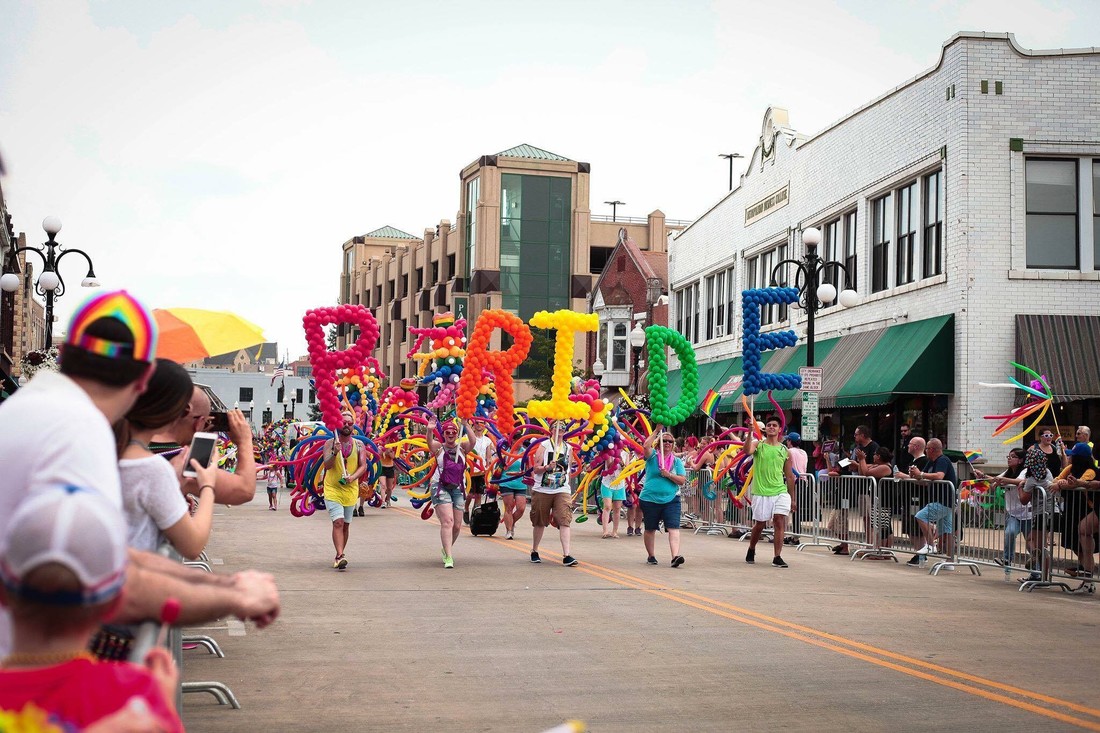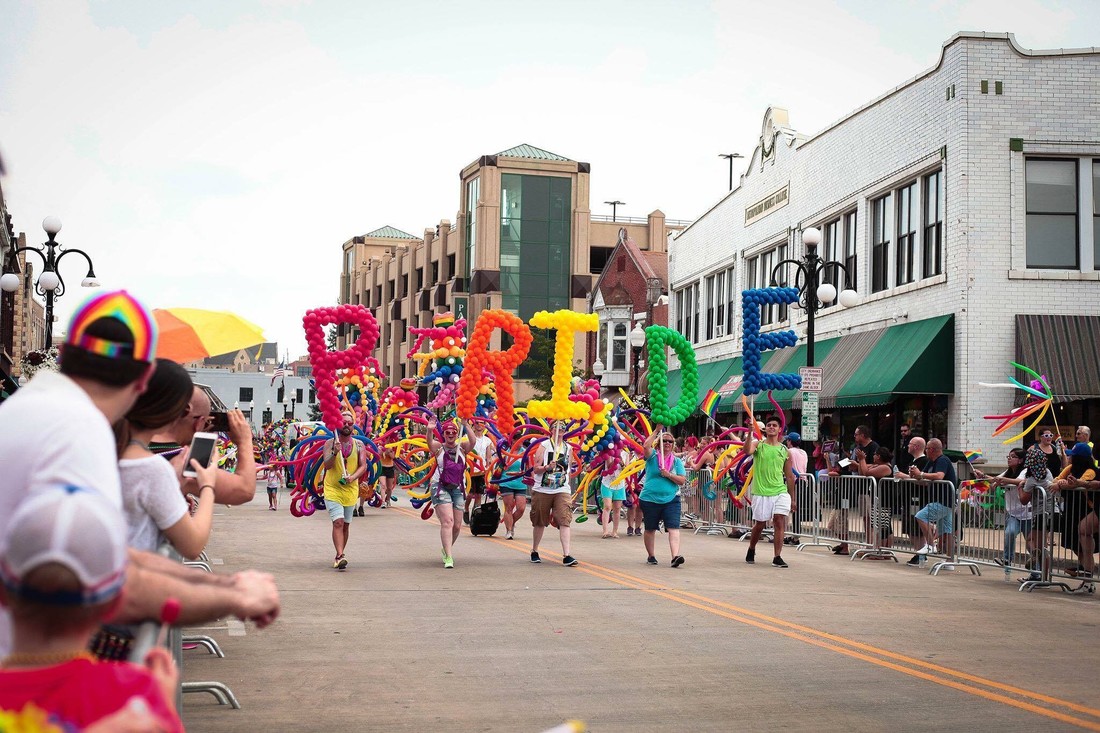
2018 aurora pride festival
photo credit // aurora, il pride festival (facebook)
Organizer: "difficult to say for sure" if measures targeted Pride Festival
Aurora, IL -
Just two months before it was supposed to start, the suburban activist group Indivisible Aurora suddenly pulled the plug on the 2019 Aurora Pride Festival one year after the event's successful launch.
The Friday announcement came after the group was told a new city ordinance would increase the costs of the parade alone four times what it was the previous year. After examining several different options and working with both the city and the mayor, the group decided the only feasible option was to cancel the festival.
While Indivisible Aurora's LGBTQ director Gwyn Ciesla told GoPride it was "difficult to say for sure" whether the new measures seemed to target the Pride Festival, she noted it was not the only event to suffer. The Puerto Rican Heritage Parade had to cancel for the same reason. The Mayor's Office did not return GoPride's email seeking comment.
Still, Ciesla did credit the city government for its efforts to accommodate their festival. "There was certainly work done to come up with a shorter route," she said. "That's a non-trivial exercise for the special events department and Aurora Police Department."
Aurora's 2018 Pride Festival brought an estimated 10,000-12,000 people to the downtown area. Aurora, located about an hour west of Chicago, is Illinois' second-largest city, boasting an estimated population of over 200,000 people. It is primarily split between neighboring DuPage and Kane Counties. Indivisible Aurora said other communities throughout Chicagoland were looking to replicate their success.
"Together we proved it could be done and done well locally. Over this past year, we shared our information and inspiration with activists and allies in Buffalo Grove, Naperville, Bolingbrook, Mokena, Joliet and Muncie, Indiana," read a statement from the group. "They are all working hard to continue the fight for equality in their communities. We are proud of that. You should be proud of that too."
The festival's theme would have been "Promoting the inclusion and support of LGBTQ+ Aurorans through art, entertainment, and conversation," part of an effort to push back against the current political climate and legislative assaults on LGBTQ+ rights across the country.
The Friday announcement came after the group was told a new city ordinance would increase the costs of the parade alone four times what it was the previous year. After examining several different options and working with both the city and the mayor, the group decided the only feasible option was to cancel the festival.
While Indivisible Aurora's LGBTQ director Gwyn Ciesla told GoPride it was "difficult to say for sure" whether the new measures seemed to target the Pride Festival, she noted it was not the only event to suffer. The Puerto Rican Heritage Parade had to cancel for the same reason. The Mayor's Office did not return GoPride's email seeking comment.
Still, Ciesla did credit the city government for its efforts to accommodate their festival. "There was certainly work done to come up with a shorter route," she said. "That's a non-trivial exercise for the special events department and Aurora Police Department."
Aurora's 2018 Pride Festival brought an estimated 10,000-12,000 people to the downtown area. Aurora, located about an hour west of Chicago, is Illinois' second-largest city, boasting an estimated population of over 200,000 people. It is primarily split between neighboring DuPage and Kane Counties. Indivisible Aurora said other communities throughout Chicagoland were looking to replicate their success.
"Together we proved it could be done and done well locally. Over this past year, we shared our information and inspiration with activists and allies in Buffalo Grove, Naperville, Bolingbrook, Mokena, Joliet and Muncie, Indiana," read a statement from the group. "They are all working hard to continue the fight for equality in their communities. We are proud of that. You should be proud of that too."
The festival's theme would have been "Promoting the inclusion and support of LGBTQ+ Aurorans through art, entertainment, and conversation," part of an effort to push back against the current political climate and legislative assaults on LGBTQ+ rights across the country.






